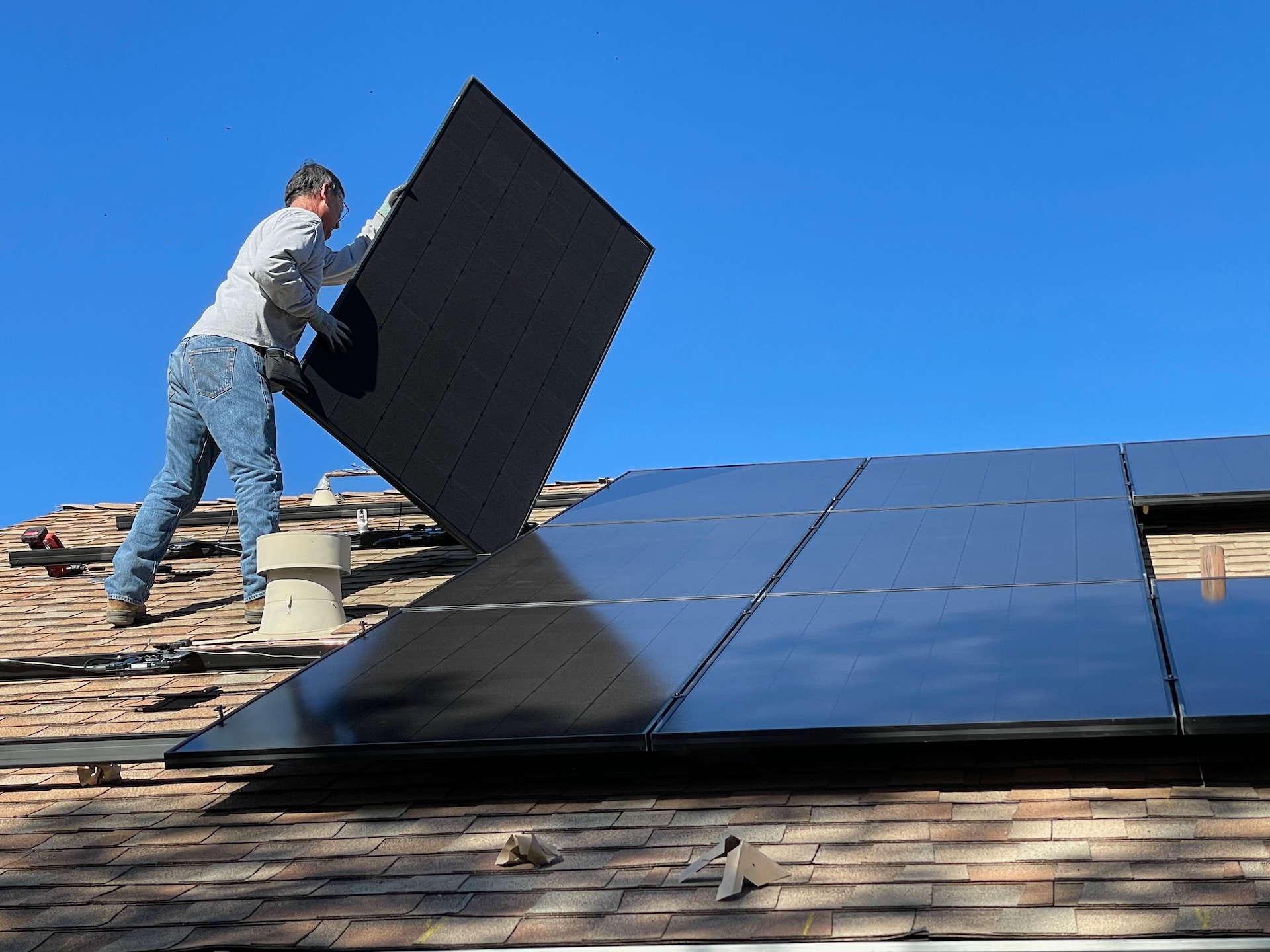Solar energy can work wonders to cut your energy bills. So now is the time to start learning more about it!
But before you go out and buy solar energy equipment for your home, it can help to get a basic idea about how it works. There’s a lot of fascinating science behind it, and if you don’t know it, you’ll find yourself lost when it comes to installation.
So how does solar work, in simple terms? Are you interested in learning more? If so, this short and simple guide is for you!
Let’s begin!
An Introduction to Photovoltaic Cells
A photovoltaic cell, or solar cell, is the basic building block of a solar energy system. It is a device used to convert electricity from the sun’s rays into a form that can be used by common electrical appliances.
The solar cell is made up of several components, often including:
- A silicon wafer
- Metal electrodes
- A photovoltaic layer
When sunlight hits the solar cell, the electrons in the layered materials are excited and freed from their atoms. This current is then drawn from the cell into an external circuit, where it can be used to power appliances.
Solar energy technology is incredibly diverse and has applications for both large-scale and individual uses. With its constantly growing market, the solar industry is an integral part of the energy landscape of the future.
Basic Components of a Solar System
The basic components of a solar system are essential to how it works. A solar system is composed of four main elements which include:
Solar Panel
A solar panel typically uses PV cells that are composed of two layers of silicon. In addition, photons from the sun hit the top layer of silicon, which then releases electrons. A current is then generated when those electrons are collected and sent to the inverter.
Charge Controller
A charge controller is used to ensure the battery is not overcharging or draining too quickly. This ensures the battery remains charged during optimal temperatures and conditions.
It is a valuable piece of equipment that helps regulate the flow of current in the solar system to maximize its efficiency.
Inverter
The inverter is the device that converts the direct electricity from the PV cells into AC, which is the type of electricity used in the home. Once it is converted, it can be used for general in-home or office activities like lighting, cooking, and powering electronics.
Any excess energy that is generated can also be stored in a battery or sold back to the grid.
Solar System’s Battery
The system’s battery is a collection of solar cells designed to capture, store, and use energy from the sun. Solar cells are made up of semiconductors like silicon that capture the sun’s rays and convert them into DC power. This DC power is then stored in either:
- Deep-cycle lead-acid batteries
- Lithium-based batteries
- Nickel-based batteries
Additionally, these batteries are excellent for saving energy, as they allow you to store up the energy during the day for use at night. Should there be any power outages in the area, you still have the power you can use.
Reducing Your Carbon Footprint With Solar
Solar energy is a renewable and sustainable form of energy, making it great for reducing your carbon footprint. By utilizing solar energy for your home’s electricity needs, you can do your part in:
- Reducing greenhouse gas emissions
- Fighting climate change
- Preserving the environment
Since the energy source is constantly available with the sun, solar energy does not contribute to the depletion of natural resources.
Taking Advantage of Solar Technology
Taking advantage of solar electricity is becoming popular because of its cost efficiency and environmental sustainability. These systems can be used to power a whole house or just for specific items such as a pool or hot tub.
They can also be connected to existing power grids, allowing for extra electricity to be generated and stored. To sum it up, it offers many benefits in terms of:
- Low maintenance
- Cost savings on electricity bills
- Increasing property value
- Reducing the dependence on fossil fuels
- Protecting the environment
The advantages are plentiful, and with a quick science lesson, anyone can make the best of this renewable energy source.
Lower Lifetime Cost With Solar Energy
Solar energy is the cleanest and most abundant sustainable energy source available, making it an ideal solution for lowering high utility bills. In addition, solar panels are virtually maintenance-free and generate power without producing any harmful emissions.
With a lower lifetime cost than traditional electricity sources, solar energy will help you save money on your monthly bills while helping reduce your carbon footprint. This makes it a great choice for protecting both your wallet and our mother nature.
Understanding Renewable Energy Options
Solar, wind, hydro, and geothermal are all forms of renewable energy, meaning they do not deplete the emissions that traditional energy sources do. Wind energy is harvested by turbines, which rotate to generate electricity.
On the other hand, hydroelectric power is based on the flow of water and is one of the oldest forms of renewable energy. In addition, geothermal energy is produced by harnessing the natural heat of the earth.
Moreover, investing in renewable energy lessens our reliance on foreign fuel sources and helps ensure more secure energy in the future. Taking the time to read more about the solar system will help you decide if you’re up for the change.
The Future of Solar Energy
The future of solar energy is looking more promising than ever. By utilizing the sun’s rays, solar energy can generate electricity to power homes and businesses alike.
Currently, people are investing their money in solar technologies and infrastructure, hoping that it will be even more affordable. Furthermore, governments and businesses around the world are supporting this innovation.
As technology improves and costs decrease, solar energy is becoming more accessible and beneficial to consumers. With the abundance and free availability of solar energy, it’s likely to become the primary energy source of the future.
A Guide on How Does Solar Work
Based on the information on how does solar work, it is evident that solar power is a fantastic renewable energy source. It’s simple to produce, clean, sustainable, and cost-effective.
To make sure you make the most of this technology, consider consulting a qualified installer to help get you started. Now that you have an idea about solar electricity, try making the switch today!






Leave A Comment